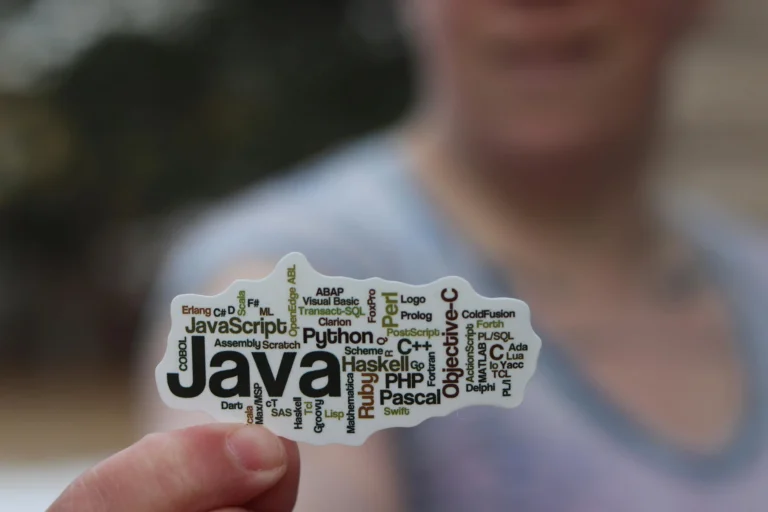Abstract Classes vs Interfaces in Java: When to Use Each?
In Java, abstract classes and interfaces are powerful tools for achieving abstraction, a core principle of Object-Oriented Programming (OOP). While both abstract classes and interfaces allow you to define abstract methods (methods without implementations), they serve different purposes and have distinct use cases.
In this guide, we will explore:
- Differences between abstract classes and interfaces in Java.
- When to use an abstract class or an interface.
- Practical examples and best practices for choosing the right approach.
📖 Learn more: Oracle Java Abstraction Documentation
What is an Abstract Class in Java?
An abstract class is a class that cannot be instantiated and may contain abstract methods, concrete methods, fields, and constructors. It serves as a base class for other classes.
Characteristics of Abstract Classes:
- Can contain both abstract and non-abstract methods.
- Allows fields and state management (instance variables).
- Can have constructors.
- Supports inheritance (
extendskeyword). - Can implement multiple interfaces.
Syntax:
abstract class Animal {
// Abstract method (no implementation)
abstract void makeSound();
// Non-abstract method
void sleep() {
System.out.println("Sleeping...");
}
}Example of Abstract Class:
abstract class Animal {
abstract void makeSound();
void sleep() {
System.out.println("Sleeping...");
}
}
class Dog extends Animal {
@Override
void makeSound() {
System.out.println("Bark");
}
}
public class Main {
public static void main(String[] args) {
Dog dog = new Dog();
dog.makeSound();
dog.sleep();
}
}📖 Learn more: GeeksforGeeks – Abstract Classes in Java
What is an Interface in Java?
An interface in Java is a completely abstract class that is used to group related methods with empty bodies. Interfaces are meant to provide a contract for implementing classes, specifying what methods should be available without detailing how they should work.
Characteristics of Interfaces:
- All methods are abstract by default (in older versions of Java) or can have default and static methods (since Java 8).
- Cannot contain fields, only public static final constants.
- Does not support constructors.
- Supports multiple inheritance (
implementskeyword).
Syntax:
interface Animal {
void makeSound(); // Abstract method
}Example of Interface:
interface Animal {
void makeSound();
}
class Dog implements Animal {
@Override
public void makeSound() {
System.out.println("Bark");
}
}
public class Main {
public static void main(String[] args) {
Dog dog = new Dog();
dog.makeSound();
}
}📖 Learn more: W3Schools – Java Interfaces
Key Differences Between Abstract Classes and Interfaces
| Feature | Abstract Class | Interface |
|---|---|---|
| Instantiation | Cannot be instantiated | Cannot be instantiated |
| Methods | Both abstract and non-abstract methods | Only abstract methods (until Java 7) |
| Fields | Can have fields | Only public static final constants |
| Constructors | Can have constructors | Cannot have constructors |
| Multiple Inheritance | Not supported through classes | Supported through interfaces |
| Access Modifiers | Can have any access modifier | Methods are public by default |
📖 Learn more: Baeldung – Abstract Classes vs Interfaces
When to Use Abstract Classes and Interfaces?
Use an Abstract Class When:
- You want to share code among several closely related classes.
- You expect that common methods or fields will be needed.
- You want to define non-static or non-final fields.
Use an Interface When:
- You expect that unrelated classes will implement your interface.
- You want to specify the behavior of a particular data type but not the implementation.
- You need multiple inheritance.
Frequently Asked Questions (FAQ)
1. Can an abstract class implement an interface in Java?
Yes, an abstract class can implement interfaces and provide partial or full implementation of the methods.
2. Can a class extend an abstract class and implement an interface simultaneously?
Yes, a class can extend an abstract class and implement one or multiple interfaces.
3. Why would I choose an interface over an abstract class?
Choose an interface when you need multiple inheritance or when defining contracts for unrelated classes to follow.
4. Can an interface contain concrete methods?
Since Java 8, interfaces can contain default and static methods with concrete implementations.
5. How do abstract classes and interfaces support polymorphism?
Both abstract classes and interfaces allow polymorphism by enabling objects to be treated as instances of parent types.
Conclusion
Choosing between abstract classes and interfaces in Java depends on the specific needs of your application. While abstract classes provide a base for related objects with shared code, interfaces offer flexibility and support multiple inheritance. Mastering the use of these concepts will significantly improve your ability to write flexible, maintainable code.
🚀 Now that we know how to work with abstraction, let’s learn how to handle exceptions in Java!



